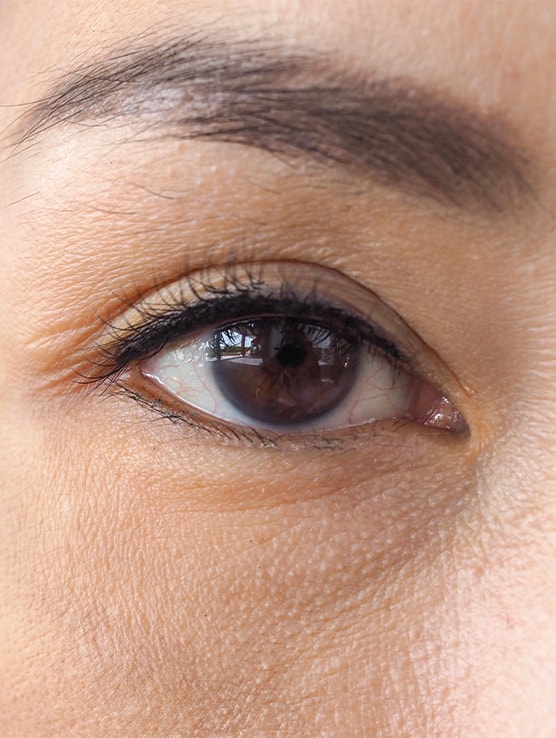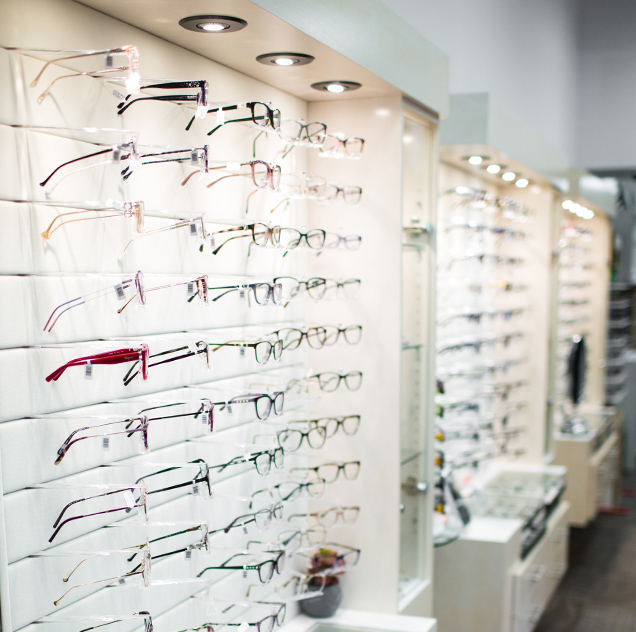
Proudly Canadian ![]()
Please note: Our dispensary is closed daily from 1:00 PM – 2:00 PM for lunch.

Diabetic Eye Disease is the term for several eye diseases associated with diabetes. The most well-known is diabetic retinopathy: a serious eye disease that can cause blindness if left unchecked.
Up to 80% of people who have had diabetes for 15 years or more will develop some form of diabetic eye disease. Because DED can be severe, regularly monitoring eye health is essential for preserving vision quality and maintaining good eyesight.
If it has been a while since your last eye exam, request an appointment today. We can help you schedule an exam at a time that is convenient for you.
If you live with diabetes, annual eye exams are a critical part of maintaining healthy vision. Diabetes can have a significant impact on your eyes if left unchecked.
Diabetes is linked to numerous eye diseases, including:
Cataracts and Glaucoma are not exclusively linked to diabetes, but diabetes can be a major risk factor for both diseases. All of the above diseases carry the potential for severe or total vision loss.
High blood sugar from diabetes is associated with damage to the blood vessels in the retina. It has four stages:
We generally diagnose diabetic retinopathy with a dilated eye exam. During a dilated eye exam we use special eye drops to dilate your eyes. This dilation ensures that your pupil remains open, enabling us to better see the internal eye tissues.
We also use ocular coherence tomography (or OCT imaging) to diagnose diabetic retinopathy. This test creates detailed images of the eye and its internal structures, including areas where blood vessels are damaged or showing signs of retinopathy.
Detecting retinopathy in its early stages is the best way to preserve as much vision quality as possible. Vision lost to retinopathy cannot be restored.
While there is no cure for retinopathy, treatments exist that can help preserve vision—especially when the disease is caught early. These treatments include photocoagulation, vitrectomy, and anti-VEGF therapy.
DME is the accumulation of fluid on the retina. This happens when abnormal blood vessels on the eye grow and swell, eventually becoming damaged and dying. This process leaks fluid onto the eye.
We also use dilated eye exams to diagnose diabetic macular edema, along with OCT imaging. OCT imaging is used to create a visualization of your eye since DME shows up in OCT images as areas of the retina that appear to be filled with fluid.
Like diabetic retinopathy, there is no known cure for DME. However, there are treatments available to preserve vision quality and prevent vision loss. In the case that these treatments are needed, Henderson Vision Centre will refer you to an ophthalmologist.
Anti-VEGF therapy blocks a protein called vascular endothelial growth factor (VEGF). The goals of anti-VEGF therapy are to prevent further abnormal blood vessel growth and to reduce the abnormal fluid in the retina. Anti-VEGF therapy is a multi-year process, during which the frequency of treatments gradually decreases.
Laser surgery is also used to treat DME. Focal-grid macular laser surgery creates many small burns where abnormal blood vessels are growing and leaking. These burns seal the blood vessels, reducing blood vessel growth and leakage.
Corticosteroids may be injected into the eye to treat DME. While corticosteroids have been shown to suppress the development of DME, their long-term use has been linked to an increased probability of developing cataracts and glaucoma.
You can find us in the River East Plaza, between Safeway and Booster Juice, and across from Tim Hortons. We have plenty of parking available on-site.

*Please note we are CLOSED on Saturdays of long weekends and for the months of July and August.








“Just had the first eye exam for my daughter with Dr. Chow. My daughter really does not like doctors… but Dr. Chow was perfect she did the exam flawlessly and handled my daughter’s objections really well. ZERO stress. Now my daughter is excited to come back for her next eye exam in a year. Thank you also to Dr. Mestito-Dao super nice and super accommodating! Not to mention the staff, pro’s at what they do. Thank you and nicely done HVC!”
“I had a very good experience with this clinic. The reception staff were warm, and efficient. My insurance coverage was handling very well. The pre-exam procedures were done well, by staff that were well versed in doing them. The Optometrist (Dr Zimmer), was excellent to deal with and very thorough. The office had a pleasant ambiance, and I left my appointment with a very “good feeling” about the whole experience. I will be booking my appointments with this clinic again.”
“Every time I go to the H.V.C. I’m very pleased with Dr. Mundle & his staff’s thorough eye examination. They always take their time to explain & answer any questions I have regarding their tests & procedures.”
“Everyone was very friendly. They went over and above to explain everything to me. Helped me pick out new glasses which I’m obsessed with. When I went back in to pick them up the girl was so excited to help me and I left feeling so confident.”
“The staff are so friendly and it’s a very welcoming place. I see Dr. Mestito-Dao and I always feel like she listens to me and offers great feedback & advice. The exams are thorough so I also feel reassured that I’m in good hands and have had a comprehensive appointment. I would recommend Henderson Vision Centre to anyone.”
Yes, the discomfort from dry eyes can contribute to headaches for many people, but dry eye itself does not cause headaches. […]
Yes, the discomfort from dry eyes can contribute to headaches for many people, but dry eye itself does not cause headaches. […]
2026 glasses are a blend of bold self-expression and classic comfort, with styles that let your individuality shine through. […]
2026 glasses are a blend of bold self-expression and classic comfort, with styles that let your individuality shine through. […]
That stinging feeling when you cry can happen when the delicate balance of your tears is disrupted or when outside irritants mix with them. […]
That stinging feeling when you cry can happen when the delicate balance of your tears is disrupted or when outside irritants mix with them. […]